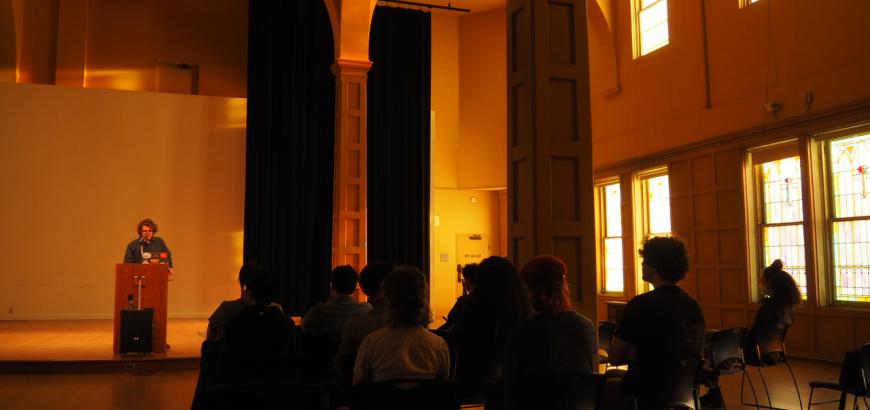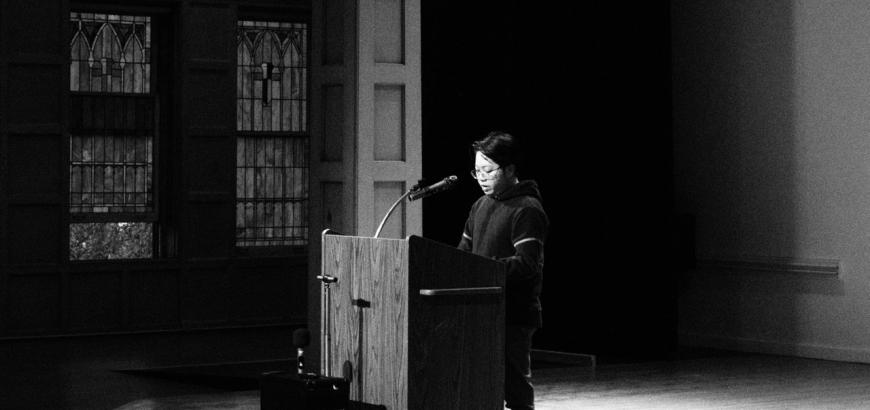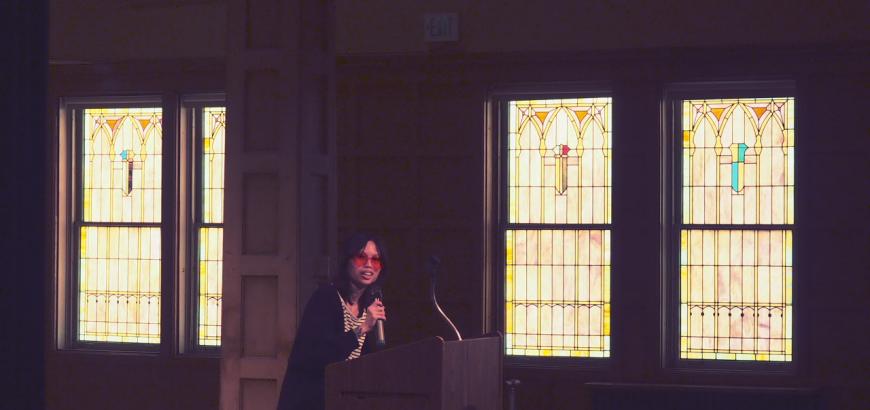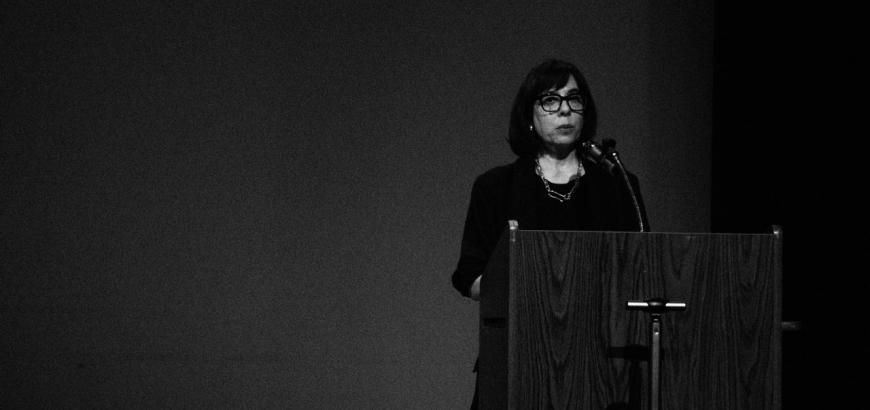Master of Fine Arts in Creative Writing
Our MFA students participate in student-centered writing workshops supplemented by the study of literary periods and critical theory. Workshops are usually small (8-10 students) and taught using a variety of pedagogical approaches. By the end of the first year of study students will have familiarized themselves with a variety of workshop methodologies as they work toward their second year thesis.
In their second year MFA candidates present a Creative Manuscript (minimum 30 poems,100 pages of 5 short stories and/or personal essays, or 150 pages of a novel or book-length essay), a Critical Essay (20-30 pages, addressing the student's relationship to their reading based on the student's own writerly concerns and studies), and an oral presentation (a discussion with and/or questions from the candidate's thesis committee on the creative manuscript, critical essay, and/or the writing process and which may include a reading from the candidate's Creative Manuscript).
All students accepted into the program are funded through Teaching Assistantships, Fellowships, and a long-standing relationship with the Amazon Literary Partnership. All students receive full tuition waivers, health insurance, and a monthly stipend. See the Resources page for more details on the MFA Program's funding package.
Students also enjoy Seattle's lively literary and arts scene. Seattle is home to numerous reading series, the Seattle International Film Festival, and many highly-acclaimed theater companies. Surrounded by spectacular scenery, Seattle is minutes away from hiking, skiing, and boating.
For questions about the MFA program, please contact cwriting@uw.edu
Master of Fine Arts in Creative Writing Course Requirements
55 credits, a creative manuscript, and a critical essay. The program should be completed within six full-time quarters.
- 20 course credits in creative writing workshops (one may be outside the student's genre)
- 15 credits in graduate literature seminars (5 credits of which must be a seminar numbered 506-510, 550, 551, or 581)
- 5 elective credits (5 credits of internship [601] can count for degree credit)
- 15 thesis credits, under the direction of a Thesis Committee, including each of the following:
1) Creative Manuscript: a minimum of 30 poems, or 100 pages of 5 short stories and/or personal essays, or 150 pages of a novel or book-length essay.
2) Critical Essay: 20-30 pages, addressing the student's relationship with their reading, based on the student's own writerly concerns and studies, using a reading list compiled by the student. - An Oral Presentation: a discussion with and/or questions from the candidate's thesis committee on the creative manuscript, critical essay, and/or the writing process and which may include a reading from the candidate's creative manuscript.
- The submission of the Creative Manuscript or the Critical Essay as an Electronic Thesis.



